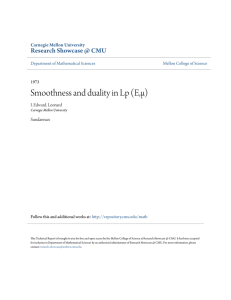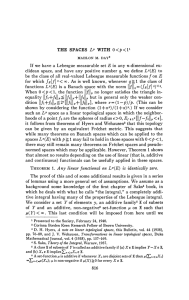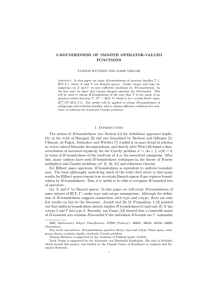ABSTRACT Analysis class. The second author was a student who came... assignment and which I realized could be used to generalize...
advertisement
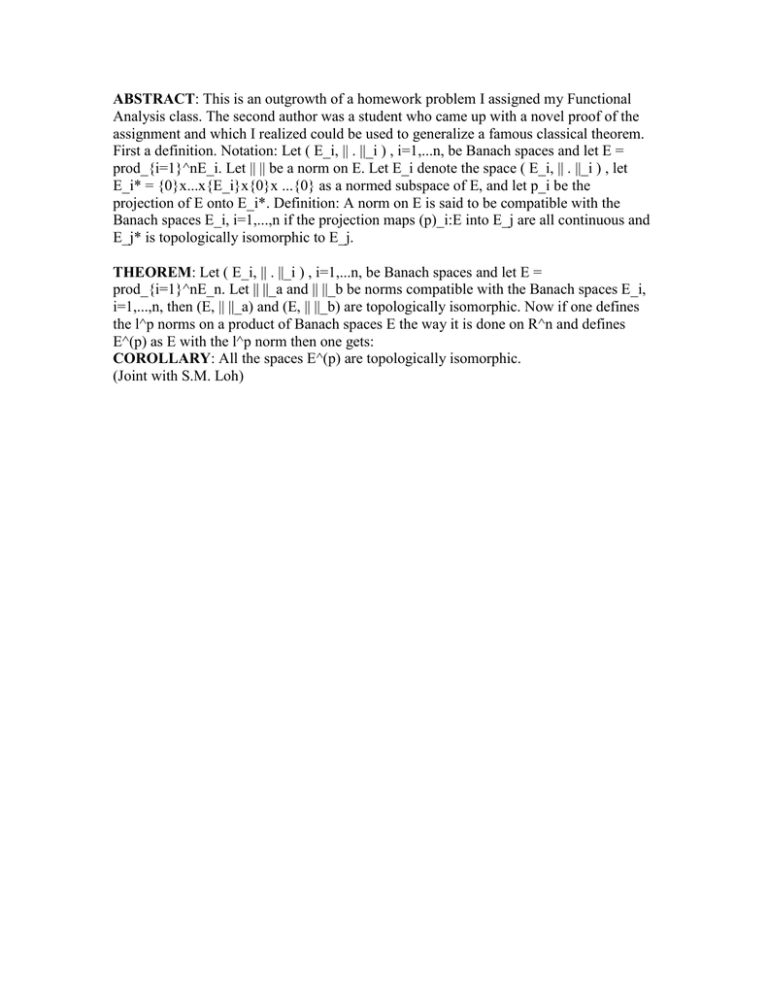
ABSTRACT: This is an outgrowth of a homework problem I assigned my Functional
Analysis class. The second author was a student who came up with a novel proof of the
assignment and which I realized could be used to generalize a famous classical theorem.
First a definition. Notation: Let ( E_i, || . ||_i ) , i=1,...n, be Banach spaces and let E =
prod_{i=1}^nE_i. Let || || be a norm on E. Let E_i denote the space ( E_i, || . ||_i ) , let
E_i* = {0}x...x{E_i}x{0}x ...{0} as a normed subspace of E, and let p_i be the
projection of E onto E_i*. Definition: A norm on E is said to be compatible with the
Banach spaces E_i, i=1,...,n if the projection maps (p)_i:E into E_j are all continuous and
E_j* is topologically isomorphic to E_j.
THEOREM: Let ( E_i, || . ||_i ) , i=1,...n, be Banach spaces and let E =
prod_{i=1}^nE_n. Let || ||_a and || ||_b be norms compatible with the Banach spaces E_i,
i=1,...,n, then (E, || ||_a) and (E, || ||_b) are topologically isomorphic. Now if one defines
the l^p norms on a product of Banach spaces E the way it is done on R^n and defines
E^(p) as E with the l^p norm then one gets:
COROLLARY: All the spaces E^(p) are topologically isomorphic.
(Joint with S.M. Loh)
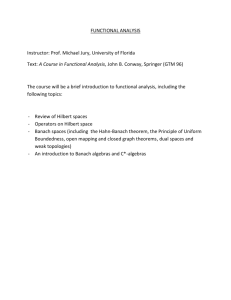
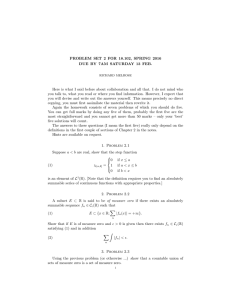
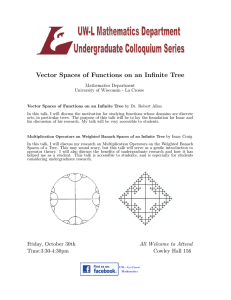
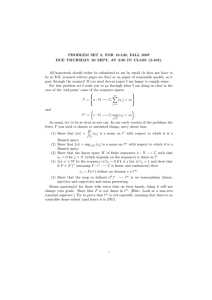
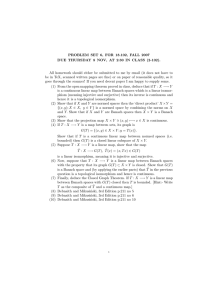
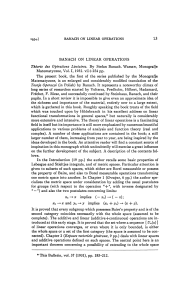
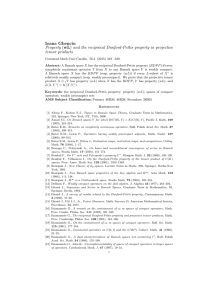
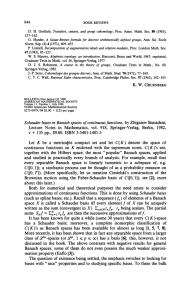
![WEAK∗ DENTABILITY INDEX OF SPACES C([0,α]) 1. Introduction](http://s2.studylib.net/store/data/018533697_1-ec113b8d555c1d09c6a911b5a16affe6-300x300.png)
